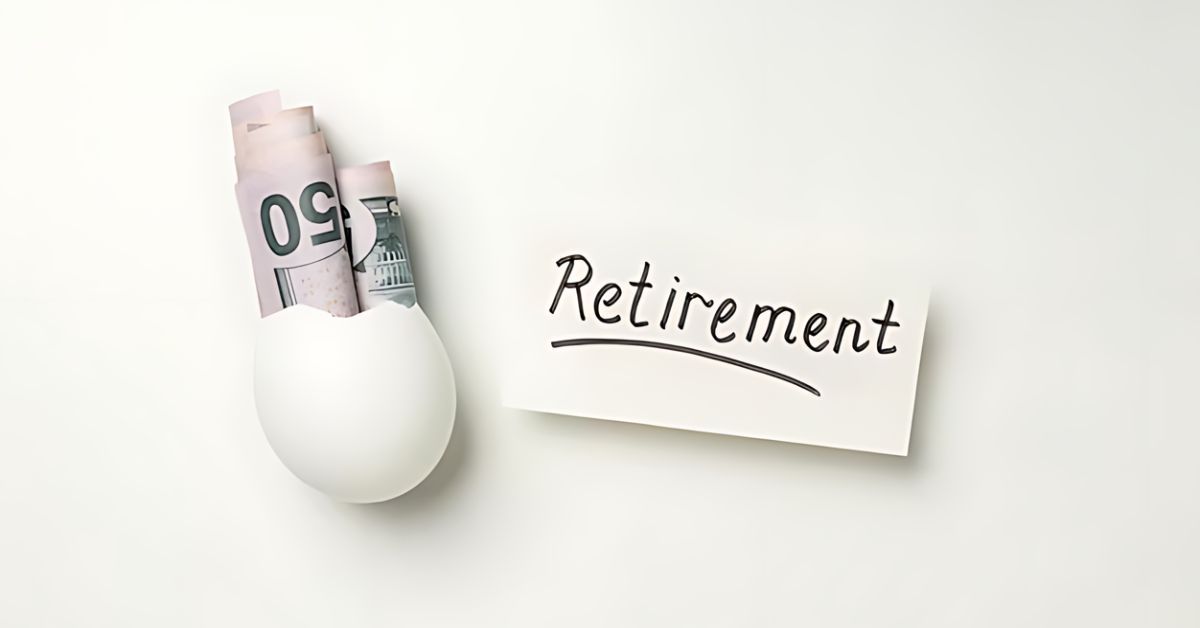The Ultimate Roadmap to Retirement Planning for New Jersey Seniors

So you’ve spent most of your life working hard to build your wealth. As retirement approaches, it's normal to think about your future and imagine what your golden years will be like.
The question is: How can you have the retirement you’ve always wanted?
Retirement planning is the answer, but it can feel easier said than done.
In a National Institute on Retirement Security survey, 55% of Americans are concerned they can’t achieve financial security in retirement.
The good news is – it’s never too early or too late to map out your post-work years.
A useful tool like a comprehensive retirement roadmap can help ease the anxieties of retirement.
Whether you need tips on how to keep up with inflation or manage debt, this blog will guide you through the ins and outs of retirement planning in New Jersey. Let’s get started!
It’s important to choose a financial planner who understands your financial needs and goals.
Whether you need help with estate planning or tax efficiency, a knowledgeable financial advisor can guide you.
This blog will cover everything you need to know about financial planning for seniors.
Key Takeaways
- Retirement planning involves saving and growing your money to ensure financial security.
- Effective retirement planning allows you to estimate your future expenses, maintain your lifestyle, and pursue your post-retirement dreams.
- Choosing the right strategies and investments ensures that you make lasting savings.
- A good retirement planner in NJ helps you understand your finances.
Understanding Retirement in New Jersey

Retirement allows us to reflect on the years that have passed and focus more on personal fulfillment and goals.
Imagine enjoying your golden years without stressing over finances - allowing you to enjoy the lifestyle you’ve earned. Without any financial worries, you will be able to live worry-free while you transition into a new phase of your life.
If you're a New Jersey resident, retiring in the Garden State has its pros and cons.
To make the most out of your retirement in New Jersey, consider these factors that could influence your decision:
New Jersey Retirement Programs
Aside from Social Security, New Jersey offers several retirement programs to support its residents. Most of the primary retirement plans for public employees are managed by the Division of Pensions and Benefits, including:
- Teachers' Pension and Annuity Fund (TPAF): For public school teachers and certain other school employees.
- Public Employees' Retirement System (PERS): For most state, county, municipal, and school board employees who are not eligible for other retirement systems.
- Police and Firemen's Retirement System (PFRS): For full-time, permanent police officers and firefighters.
- Defined Contribution Retirement Program (DCRP): For public officials, and certain employees who are not eligible for PERS or TPAF. This is similar to a 401(k), where both the employer and employee make contributions
These systems have specific eligibility requirements and benefit pensions based on years of service and final average salary.
You may refer to the New Jersey Division of Pensions and Benefits website or your retirement system’s handbook for more information.
Diverse Communities
The location you choose for retirement can have a large impact on your experience. For example, Monmouth County is a popular area for retirees due to its scenic coastline and community amenities.
Keep in mind that retirement is the perfect time to explore new hobbies and enjoy leisure activities.
From beautiful beaches to cultural attractions, New Jersey’s diverse landscape offers a wealth of recreational opportunities.
Cost of Living

Due to its proximity to New York City, New Jersey’s cost of living and housing prices are higher than average household. Whether owning or renting, home prices and property taxes in New Jersey are higher than in other states.
According to a Forbes article, New Jersey ranked 8th for house prices with a median price of $484,467 and a monthly mortgage payment of $2,895. It also ranked 3rd state with the highest rental fees, averaging a total monthly cost of $1,828.
These factors could be a concern for retirees on a fixed income or those looking to stretch their retirement savings further.
Taxes and Other Senior Benefits in NJ
Despite the high cost of living, New Jersey gives retirees favorable tax treatment.
Social Security benefits are not taxed by the state, which helps extend your post-work income.
There's also a retirement income exclusion that can reduce your taxable earnings if you meet specific conditions. Individuals aged 62 and older may exclude up to $100,000 of retirement income.
As an NJ resident, you can save more and stress less by using these tax benefits.
Healthcare

Access to quality healthcare is a critical consideration for retirees. New Jersey ranks high when it comes to the healthcare system. It’s home to high-quality hospitals and healthcare facilities, making it a good place for those who need medical care during retirement.
Some retirees will qualify for health coverage under the State Health Benefits Program (SHBP) or the School Employees Health Benefits Program (SEHBP), and they can get this coverage when they retire.
This program allows employees and their covered dependents to join a Direct Primary Care doctor's office at no additional cost.
Why Retirement Planning Is Important

So, why do we need retirement planning?
Having a retirement plan is all about setting financial goals for your golden years. Your ultimate goal should be to achieve financial independence and security.
Planning for retirement allows you to maintain your current lifestyle during your later years. It involves several financial strategies to help you save and grow your money.
Here are some of the reasons why retirement planning is necessary:
- To prepare for a longer life
- To become financially secure and independent
- To reduce the stress associated with medical and financial emergencies
- To ease the burden on your loved ones
- To leave a legacy
- To protect your savings against inflation
- To live your post-career years with peace of mind.
Essential Steps for Retirement Planning
Need help in kickstarting your retirement planning? Worry no more! In this section, we will cover the key steps to help you achieve the retirement life you desire:
Step 1: Set Your Retirement Goals

Planning for retirement involves setting clear, achievable personal finance goals. This step may appear simple – but it’s crucial in your retirement strategy.
Start with your short-term and long-term retirement goals. Short-term goals might include saving for an emergency fund or paying off debt before retirement.
On the other hand, long-term goals usually take more time and effort to achieve. Examples are diversifying your investment portfolio and paying off all debts by the age of 55.
When setting retirement goals, don't forget to identify your target retirement age. Decide whether you want to retire early or on time. Knowing your retirement age helps you calculate how much you need to save and invest.
Next, visualize the lifestyle you desire in your later years. Do you intend to travel frequently? Are there hobbies or activities you want to pursue?
Your travel plans and hobbies have an impact on your expenses in the future.
Step 2: Estimate How Much Money You'll Need
Let’s now move to the next step, which is calculating the expected expenses in retirement. How much will you need to achieve the lifestyle you just envisioned?
First, go through your current expenses and identify which ones are likely to continue post-retirement.
The most common expenses are the following:
- Housing: Mortgage or rent, property taxes, and maintenance.
- Utilities: Electricity and internet bills.
- Healthcare: Insurance premiums, out-of-pocket costs, long-term care.
- Daily Expenses: Food, clothing, and transportation.
- Leisure: Travel, hobbies, and entertainment.
To estimate retirement expenses, you may follow the 70- 80% rule. This suggests that you’ll need 70-80% of your pre-retirement income to maintain your standard of living. From there, adjust your retirement income estimate to the average inflation rate.
How does inflation affect your retirement plans?

Inflation is the gradual loss of purchasing power over time. As inflation drives up prices, the cost of living also increases.
When creating a retirement strategy, you need to ensure your savings can cover these higher costs.
Let's consider a real-life scenario to illustrate the effect of inflation on retirement savings.
For instance, you usually withdraw $40,000 per year for living costs during your first year of retirement. Ten years later, the inflation-adjusted cost of living is now $52,121. Since the annual inflation rate is 3%, your savings continue to decrease faster over time.
Step 3: Know Your Options

Retirement planning isn’t only about how much to save – it’s also about where to save it.
Tax-advantaged retirement plans are the best when it comes to long-term saving goals.
There is no single best retirement plan, so make sure you know your options:
Employer-Sponsored Plans
Retirement plans like 401(k) or 403(b) are a common way to save for your post-career years.
These plans often come with benefits such as employer contributions. Many employers match 3% of your salary, effectively giving you free money.
Also, employer-sponsored plans provide tax advantages. Contributions are made pre-tax, and earnings grow tax-deferred until withdrawal.
You should check if your plan offers automatic enrollment and automatic escalation. Automatic enrollment means you start saving right away when you join the company. Automatic escalation gradually increases your contributions over time.
Before enrolling, make sure to understand the
vesting schedule. It usually takes between 3 and 5 years to become fully vested in your employer match contributions. If you leave the company before you're fully vested, you might lose part of that money.
Individual Retirement Accounts (IRAs)
If your employer doesn't offer a retirement plan, or if you want more savings options, consider Individual Retirement Accounts (IRAs).
Traditional IRA: Contributions may be tax-deductible, allowing your investments to grow tax-deferred until withdrawal.
Roth IRA: Contributions are made with after-tax dollars, but qualified withdrawals are tax-free. If you expect to be in a higher tax bracket in retirement, a Roth IRA provides you with more benefits and flexibility.
Step 4: Build Your Savings

The best way to grow your retirement savings is by choosing the right investment strategy. Diversification is probably the most popular investment strategy out there.
Essentially, you spread funds across assets like stocks, bonds, and mutual funds to reduce risk. If an investment loses value, others may not.
Starting early means your savings can benefit from compounding interest. For example, if you start investing $200 a month at age 25, you could have much more by retirement than if you start at 35. The earlier you start investing, the longer your money has to grow.
By implementing these strategies, you can effectively grow your savings and have a more stable financial journey. Seek professional advice from a financial advisor to gain knowledge about investing.
Step 5: Choose a Retirement Planner

Picking the right strategies and investment options ensures your savings last.
You deserve a partner who knows New Jersey’s financial rules and can guide you every step of the way.
Independent Fiduciary Advisors
When choosing a retirement planner, an independent fiduciary is an excellent option. Independent fiduciaries are committed to acting in your best interest, adhering to a legal and ethical standard that prioritizes your financial life and well-being.
Financial planners with several years of experience in retirement planning have likely encountered a range of scenarios. They are likely capable of guiding you through complex financial situations.
If you're looking for a trusted retirement planner in Moorestown, Leonard Financial Solutions can assist you. We offer tailored services, including tax planning, wealth management, and more.
FAQs
LEONARD FINANCIAL SOLUTIONS
Start Planning Your Secure Retirement Today
We are dedicated to helping you achieve a safe and secure retirement. Whether you're in Moorestown, New Jersey, or anywhere in the United States, our independent fiduciary team is here to provide expert guidance tailored to your needs.
